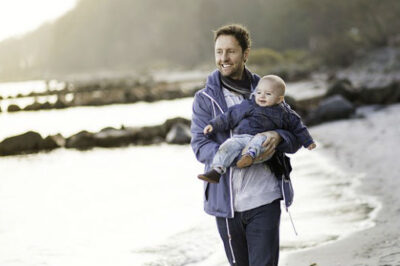From our earliest days on the playground, we’ve heard this familiar quote: “Sticks and stones may break your bones, but names can never hurt you.” Although those may have been useful words for minimizing black eyes, as we grew from boys to men we learned that it isn’t true. Names—or, more accurately, words—can and do hurt you. Careless, hurtful words are often at the heart of the growing “bullying” problem in our schools and communities.
So now that we’re dads, we need to get serious about watching the words we use with our children. Since they are now the ones who sometimes hear wounding words on the playground and other places, they should be able to feel confident that they’ll get something much different—and much more positive—when they’re around us.
Dads, our words have so much power to heal or to hurt. But too often we forget how powerful they are. Here’s a quote about the weight of words recklessly spoken: “A bit in the mouth of a horse controls the whole horse. A small rudder on a huge ship in the hands of a skilled captain sets a course in the face of the strongest winds. A word out of your mouth may seem of no account, but it can accomplish nearly anything—or destroy it!”
Now that we understand true weight of our words, how do we purposely and intentionally change not only what we speak but also the way we speak, so we’re consistently building our children up and not tearing them down? I have three ideas:
Examine your own heart. What we believe affects what we think; what we think affects how we feel; and how we feel affects our actions, our words and our conversations. Another way of saying it comes from the Bible: “For of the abundance of the heart the mouth speaks” (Luke 6:45b). There are too many dads who allow the hurts in their hearts to turn into verbal assaults on those around them. If your heart has been wounded or you feel too fragile or preoccupied to really focus on affirming your children verbally, seek out help to deal with and treat those wounds. Confiding in a trusted small group of men would be a great start.
Become a lifelong learner. Whether or not we enjoy writing, speaking and working with words in general, we need to become “apprenticing wordsmiths.” There are plenty of books, blogs and websites where we can get help with this (and fathers.com is one good example). Whatever it takes, we need to become men who are able to speak words that affirm, inspire and encourage our loved ones.
Make one change at a time. If your words are a big challenge, it might help to focus on one goal as you start working toward better habits with your kids. For example, one great approach is to affirm your child six or seven times for every one word of correction or criticism. If you can check that box every day, then you know you’re making progress.
For me, another positive change would be limiting or eliminating profanity. When I was in college, one of my professors and mentors challenged me with this statement: “Profanity is a weak mind trying to express itself more forcefully.” Maybe you think profanity isn’t a big issue, but I believe our language helps us send a consistent message to our kids. We’re most likely to use profanity when we’re correcting or criticizing them, and profanity adds another layer of insult. It could also distract our children from what we’re communicating because of the emotional “punch” added by the profanity. That’s just one example that may or may not be relevant to you, but it’s a change that could have a big impact on your ability to send positive messages to your children.
And that’s really the bigger idea here: being encouraging, life-affirming forces in our children’s lives. When we really grasp how powerful our words can be to those around us, we should be motivated to use them carefully and wisely. We really can use words to create intimacy, heal wounds and bring out the full potential in our children. {eoa}
Randell Turner, Ph.D., is a child and family therapist with Pennsylvania Counseling Services, which specializes in working with men and fathers as well as children with Attention Deficient Hyperactive Disorder (ADHD). As one of the pioneers in the Fatherhood & Men’s Movement, he has authored award-winning resources for organizations like Prison Fellowship, the National Center for Fathering, National Head Start Association, and fatherhood.gov. Randell is the father of two daughters, grateful grandfather of four, and lives in Red Lion, Pennsylvania.
This article originally appeared on fathers.com.







Leave a Comment
You must be logged in to post a comment.